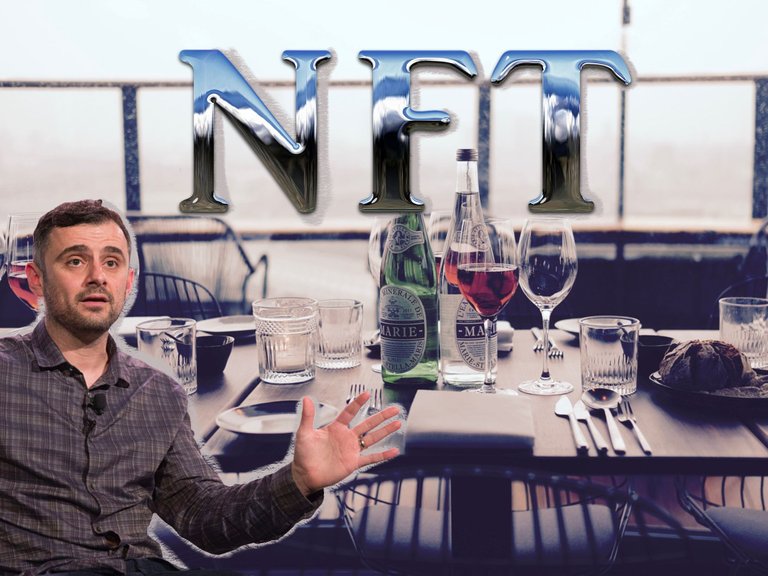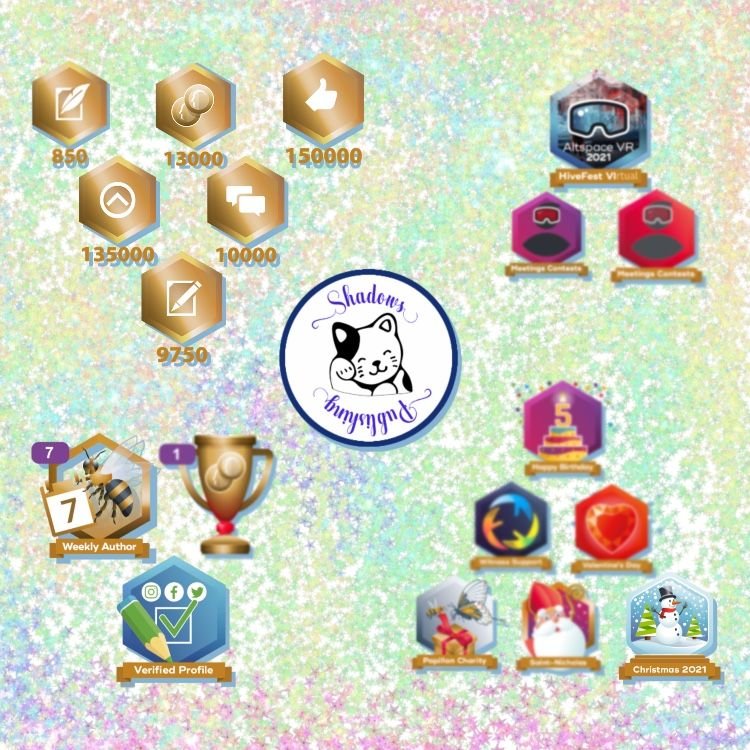
Anyone who has been around the blockchain space has been aware of the concept of NFTs for sometime. Gamers have been using them in games in Splinterlands and Decentraland. Last year they exploded into more mainstream awareness through reports of sales of digital artworks.
Current Mainstream Response to NFTs
Mainstream media has been reporting about the sales of NFTs. Not many see them as anything that will be more than a fad. They don’t get why a digital art token has value or use. Their connection to cryptocurrencies increases the scepticism.
It reminds me of the early days of the world wide web. The average person didn’t understand it and saw no practical purpose for it to even exist. They saw it as some flash In the pan that would probably only find a use in academia or a few isolated businesses.
I well remember trying to talk to people about the web and it’s potential. I was met with more than a few responses that pretty much figured I was crazy. Here we are, years later and it’s a rare person who never uses the web for anything. Even my 100 year old uncle has been using it for the last decade.
Blockchain, cryptocurrencies and NFTs are going through that same stage right now. We’ll probably move through it faster than with web adoption. Blockchain was first proposed as a research project in 1991. It was the mysterious Satoshi Nakamoto’s whitepaper on creating bitcoin in late 2008 that got the ball rolling on a more widespread use.
Very Brief Overview of NFTs History
In 2012 a paper released by Meni Rosenfield proposed creating ‘colored coins’ on the Bitcoin chain. This first NFT proposal would be to create a class of methods to create regular bitcoins with a unique mark to determine their use in proving ownership of assets.
The first known NFT was created in 2014 by digital artist Kevin McCoy. His piece “Quantum” was a pixelated octagon that pulsed created on the Ethereum chain. His piece sold in November 2012 for $1.4million as a Sotheby auction.
It was on Ethereum that NFTs built momentum with the introduction of the standards for tokens that could be created by developers. The introduction of the CryptoKitties game in 2018 and their popularity brought them briefly into mainstream awareness. The term NFT wasn’t used to describe them. The crazy profits people made trading them is what caught the media’s attention.
While cryptokitties did manage to bog down the ETH network, they also demonstrated the power and potential of NFTs. Since then there has been a steady and growing use of them alongside the growth of crypto.
The 2021 NFT Craze
Many corporations have jumped on the NFT art craze by releasing artworks from their brands as NFTs. Coupled with discussions about the emergence of metaverses, executives are searching for opportunities to tap into the growth of virtual worlds and connect with consumers. Some brands have started creating and selling digital versions of their high end products as NFTs.
Few have started to explore how to use NFTs to connect with consumers in the real world. Some retail analysts have floated the ideas of using NFTs for real world usage like amplifying loyalty program rewards or having them unlock actual products or services. The space is new and ripe for experimenting. The token economy in the real world will come.
Flyfish Club - The World’s First NFT Restaurant
Gary Veynerchuk first came to the public’s attention as a wine critic who used digital marketing to expand his family’s wine business. He’s since parlayed the knowledge he acquired into other entrepreneurial projects.
He’s a popular writer and speaker who continues to be actively involved with his fans through avenues like his VeeFriends Discord server which has over 120,000 members. In addition to embracing the world of crypto and NFTs he’s the co-founder of a restaurant reservation software company called Resy.
In many ways it shouldn’t be a surprise to see him co-found a venture that will see the world’s first NFT Restaurant, the Flyfish Club. The project was publicly launched on January 7th but will not open it’s space until the first part of 2023. Meals at the restaurant will be paid for in USD.
The Flyfish club will be a private dining club with memberships only available through NFTs. There are two levels of membership for people age 21+.
- The Flyfish token sells for 2.5ETH and gives the holder unlimited access to the dining lounge, restaurant, cocktail bar and outdoor space.
- The Flyfish Omakase token, sells for 4.25ETH and includes all of the Flyfish token access and access to an omakase room
Omakase translates to “respectfully leaving another to decide what is best” in Japanese. An Omakase dining experience refers to a Japanese dinner curated by a head sushi chef. The customer not only observes their food being prepared they are able to interact with the chef to make the dining experience very personal..
About 1500 tokens have been sold raising $14million in capital for a project that doesn’t yet have an address beyond it will be in New York City. Some of the purchasers are already reselling their tokens on OpenSeas.
The membership will be valid as long as the person holds the token. Token holders will need to place reservations to dine but are not limited on how many times a month they do so. They can lease out the token to allow someone else to have temporary access to the membership and of course they can resell it. Selling it will send 10% of the selling price to the VCR Group, Vanderchuk’s firm.
Clearly, the project is targeted at a customers with financial means. It’s a start on how NFTs can be used in real world applications. As projects build and others begin to see possibilities, we’ll see a wider range of uses on and offline.
Real World Skeptics
I read a piece in the Washington Post this morning on this project. It didn’t tell me any more than I’d already seen. What was of interest was scrolling through the couple hundred comments left on the article. They were overwhelmingly negative toward the project on two levels.
Many were offended at the upscale pricing of the project. Even more were negative on the use of NFTs. They didn’t understand the use of blockchain technology for managing the memberships. Many apparently didn’t have any awareness of the solid reputation Gary Vanderchuck has built as an entrepreneur and were declaring the whole project a scam. Predicting he will take off with the millions raised without ever opening their doors.
Sources:
GaryVee image — https://commons.wikimedia.org/wiki/File:Gary_Vaynerchuk_
Other images - Pixabay.com
Images reworked by author
https://www.altpress.com/meta/history-of-nfts-non-funfible-tokens/
https://www.cbinsights.com/research/nfts-brands-retailers-decentralized-commerce/
https://www.garyvaynerchuk.com/
https://www.flyfishclub.com/how-it-works
https://spoonuniversity.com/lifestyle/what-is-omakase


Shadowspub is a writer from Ontario, Canada. She writes on a variety of subjects as she pursues her passion for learning. She also writes on other platforms and enjoys creating books you use like journals, notebooks, coloring books etc.

She created Prompt A Day to share with others. You can subscribe to Prompt A Day to get started.

